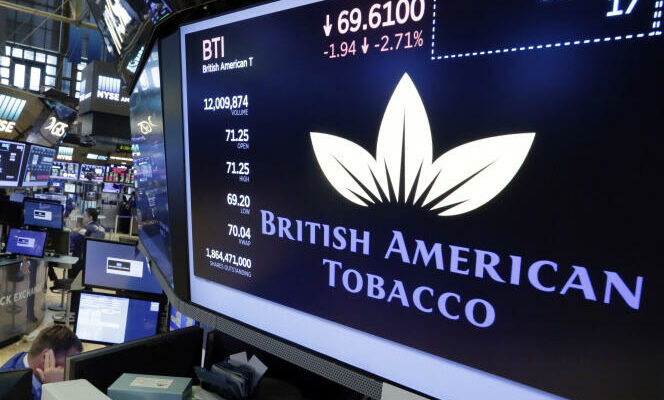LTobacco is at the heart of the long shared history between the United States and the United Kingdom. British American Tobacco (BAT) was formed in 1902 from the merger of two cigarette empires on both sides of the Atlantic, Imperial Tobacco and American Tobacco. This diversity was further strengthened in 2017 when BAT acquired the American Reynolds, the producer of Camel, Lucky Strike and Dunhill.
By announcing this Wednesday, December 6, to depreciate nearly 30 billion euros in the value of these prestigious brands, the firm marked the planned end of this adventure. In thirty years, these brands will no longer be worth anything. The cause is the accelerated decline of cigarettes in the United States. We smoked 400 billion in 2001, compared to less than half in 2021. The public health messages, associated with the increasing costs of the product, have done their work. It is the condemned cigarette for the king of tobacco who has spent decades minimizing the impact of his products on health. From now on, its slogan is: “Let’s build a smoke-free world. »
The man is not done with his favorite addiction. But we prefer vaporettes, more sophisticated, or even chewable or chewable nicotine. Moving from one profession to another is not easy. Cigarettes are very profitable when the vaporizer will only reach its break-even point this year. As a result, the Stock Exchange does not at all validate BAT’s transition strategy, which masks lower performance compared to its competitors.
Intermediate strategy
This affair is reminiscent of the situation in which the oil groups find themselves today which must manage a very profitable activity, but whose end is known, the virtual disappearance around 2050-2060. Faced with this, three strategies are possible. The first is denial, it is that of the Americans, ExxonMobil in the lead, who extract as much value as possible from their oil fields, while avoiding overly long-term investments. The second, more perilous, is pure and simple abandonment, like the Dane Orsted which sold off all its oil assets in 2017 to convert to renewable electricity production.
And then there is the intermediate strategy, that of BAT, chosen by the European oil companies BP, Shell and TotalEnergies. We continue the old business and use the cash to invest in electricity and renewable energies. A welcome but delicate transition. We run the risk of getting angry both with financial investors who note the low profitability of new activities and with civil society which wants to move faster. It is even more difficult to quit oil than cigarettes.
